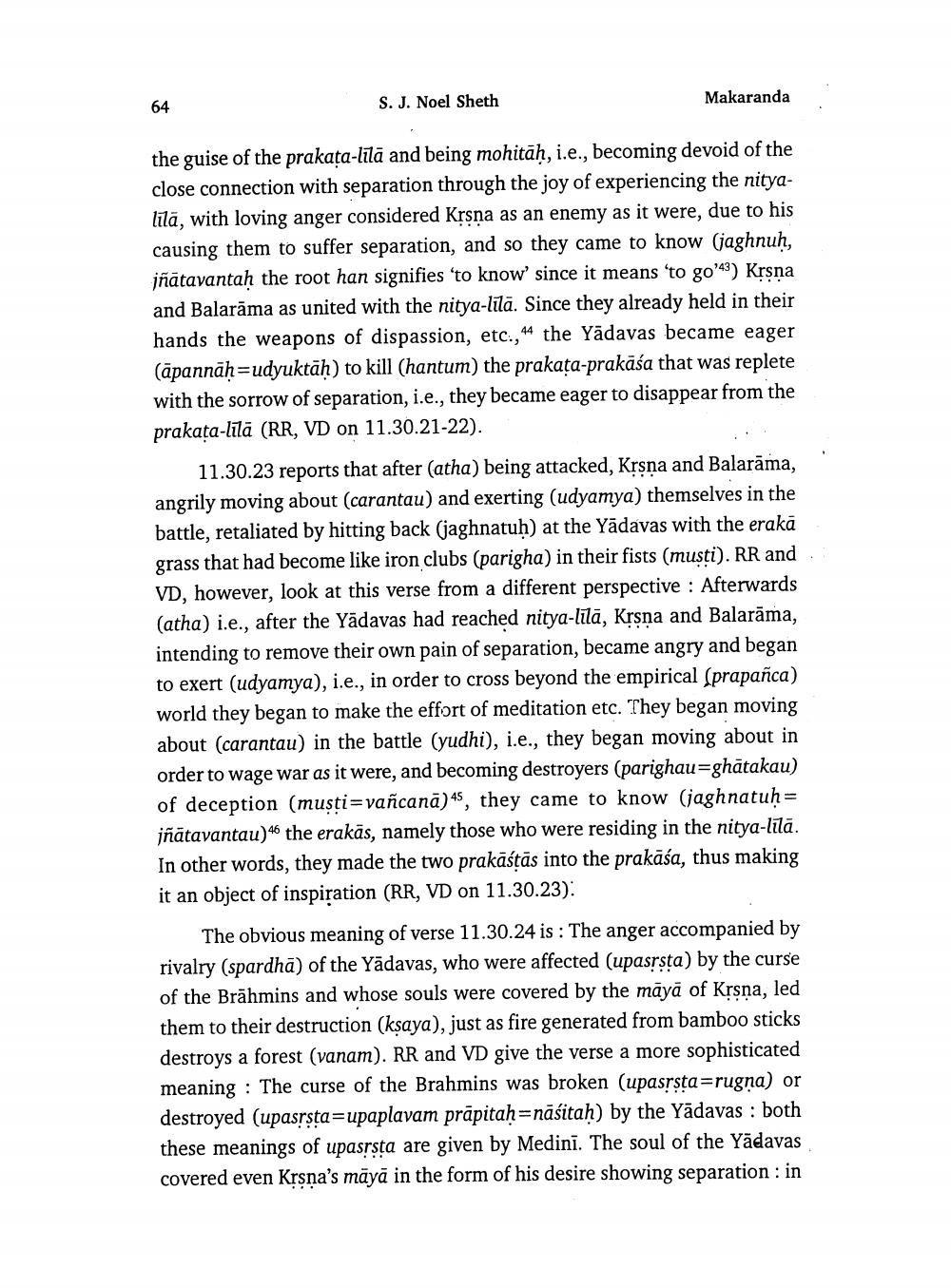________________
64
S. J. Noel Sheth
Makaranda
the guise of the prakaṭa-līlā and being mohitaḥ, i.e., becoming devoid of the close connection with separation through the joy of experiencing the nityalilä, with loving anger considered Krsna as an enemy as it were, due to his causing them to suffer separation, and so they came to know (jaghnuḥ, jñātavantaḥ the root han signifies 'to know' since it means 'to go'43) Krsna and Balarama as united with the nitya-lila. Since they already held in their hands the weapons of dispassion, etc.,44 the Yadavas became eager (apannāḥ=udyuktāḥ) to kill (hantum) the prakaṭa-prakāśa that was replete with the sorrow of separation, i.e., they became eager to disappear from the prakaṭa-līlā (RR, VD on 11.30.21-22).
11.30.23 reports that after (atha) being attacked, Kṛṣṇa and Balarama, angrily moving about (carantau) and exerting (udyamya) themselves in the battle, retaliated by hitting back (jaghnatuḥ) at the Yadavas with the erakā grass that had become like iron clubs (parigha) in their fists (musti). RR and VD, however, look at this verse from a different perspective: Afterwards (atha) i.e., after the Yadavas had reached nitya-lila, Kṛṣṇa and Balarāma, intending to remove their own pain of separation, became angry and began to exert (udyamya), i.e., in order to cross beyond the empirical (prapanca) world they began to make the effort of meditation etc. They began moving about (carantau) in the battle (yudhi), i.e., they began moving about in order to wage war as it were, and becoming destroyers (parighau=ghātakau) of deception (musti=vañcanā)45, they came to know (jaghnatuḥ= jñātavantau) the erakās, namely those who were residing in the nitya-līlā. In other words, they made the two prakāśṭās into the prakāśa, thus making it an object of inspiration (RR, VD on 11.30.23):
The obvious meaning of verse 11.30.24 is: The anger accompanied by rivalry (spardha) of the Yadavas, who were affected (upasrsta) by the curse of the Brahmins and whose souls were covered by the maya of Kṛṣṇa, led them to their destruction (kṣaya), just as fire generated from bamboo sticks destroys a forest (vanam). RR and VD give the verse a more sophisticated meaning The curse of the Brahmins was broken (upasrsta=rugna) or destroyed (upasrsta=upaplavam präpitaḥ=nāsitaḥ) by the Yadavas : both these meanings of upasṛsta are given by Medini. The soul of the Yadavas covered even Kṛṣṇa's māyā in the form of his desire showing separation : in




